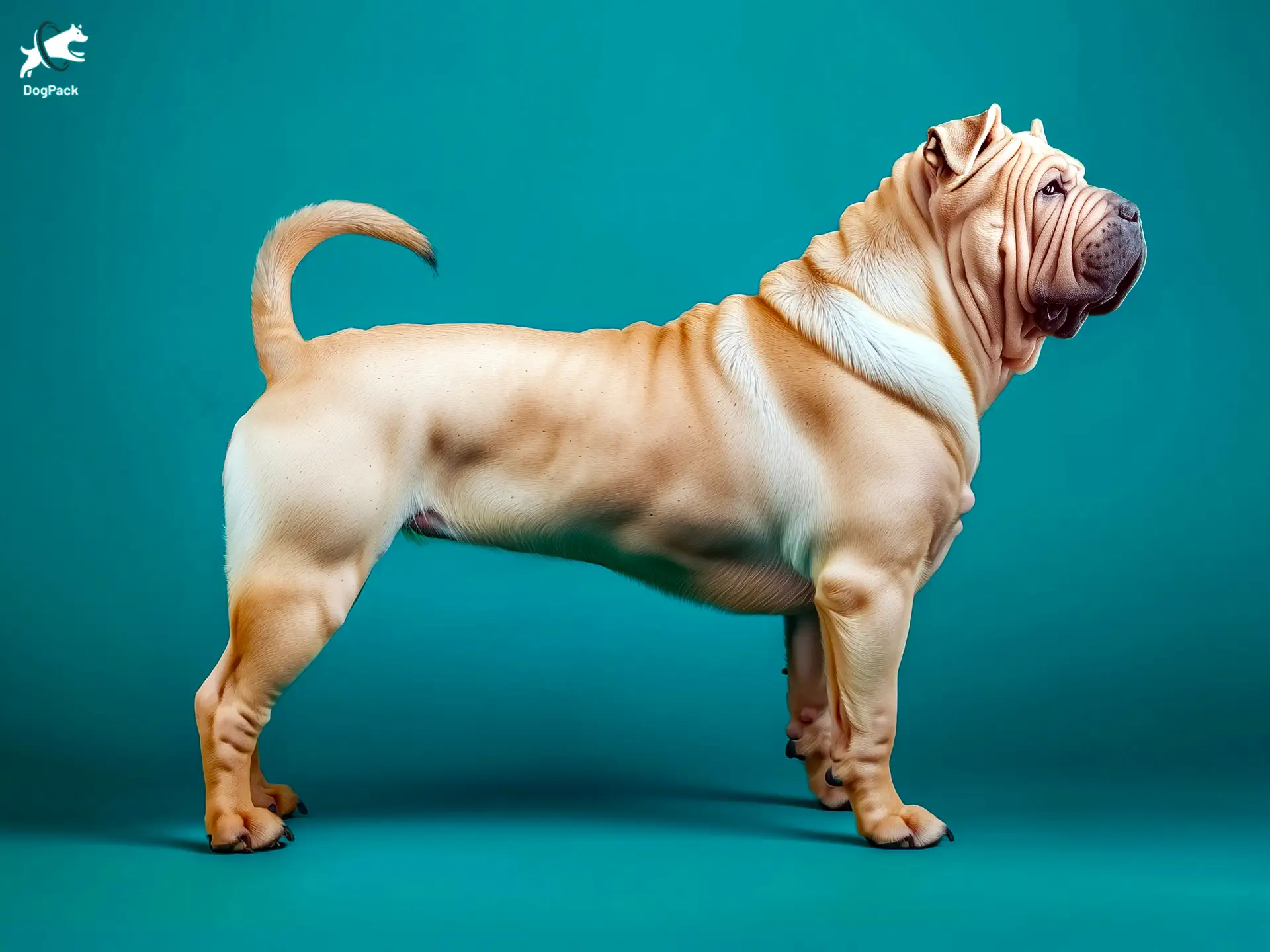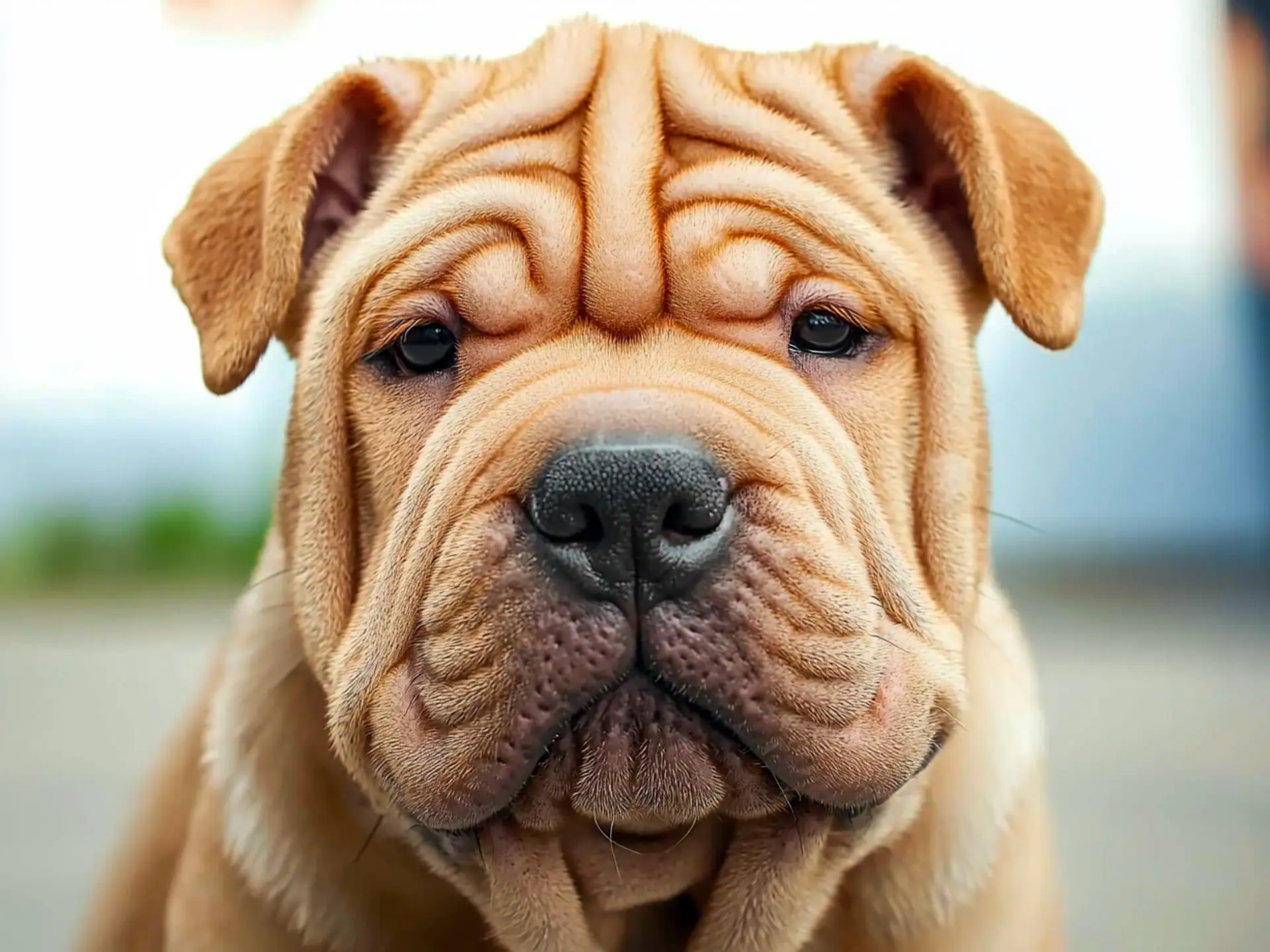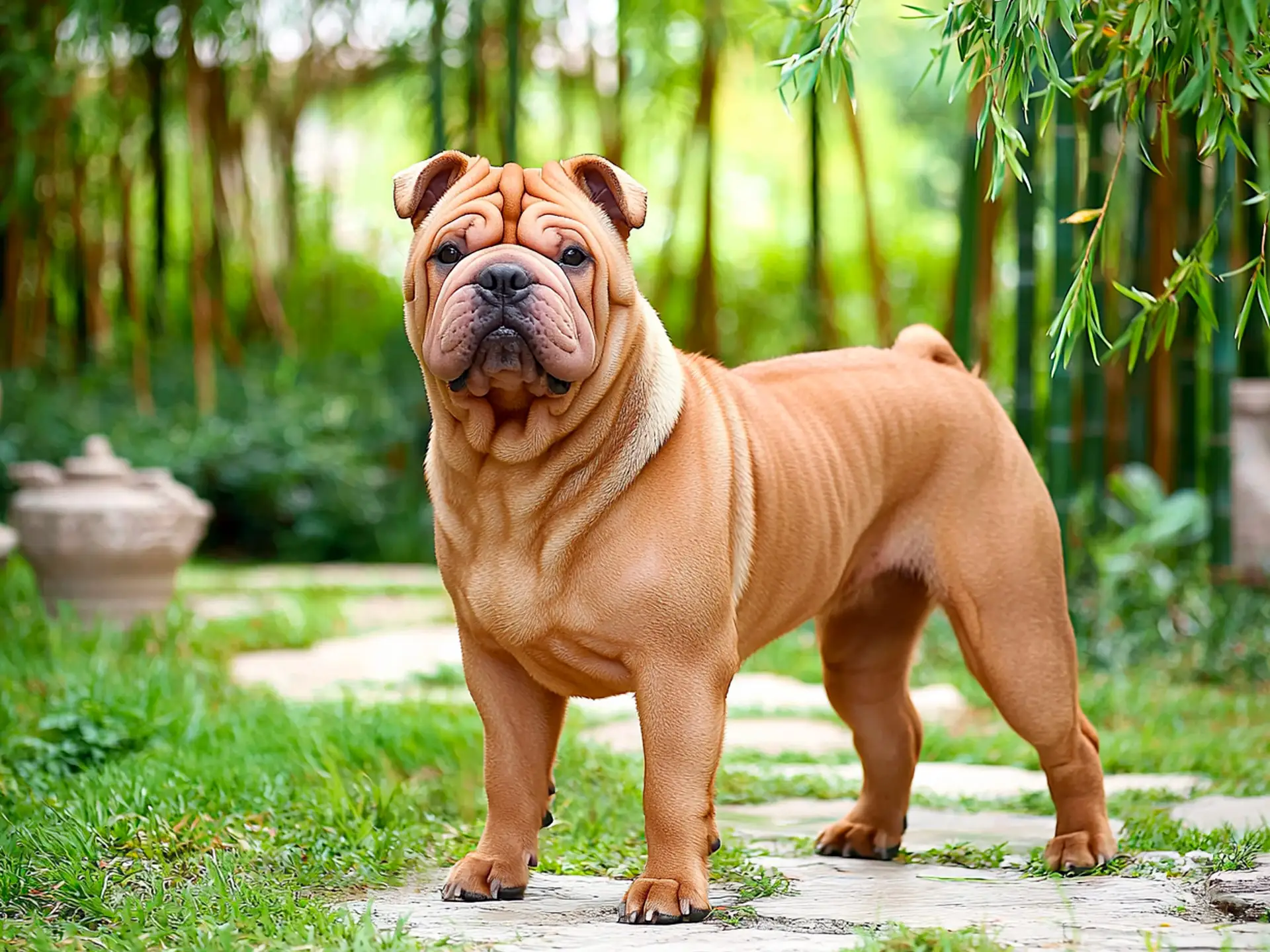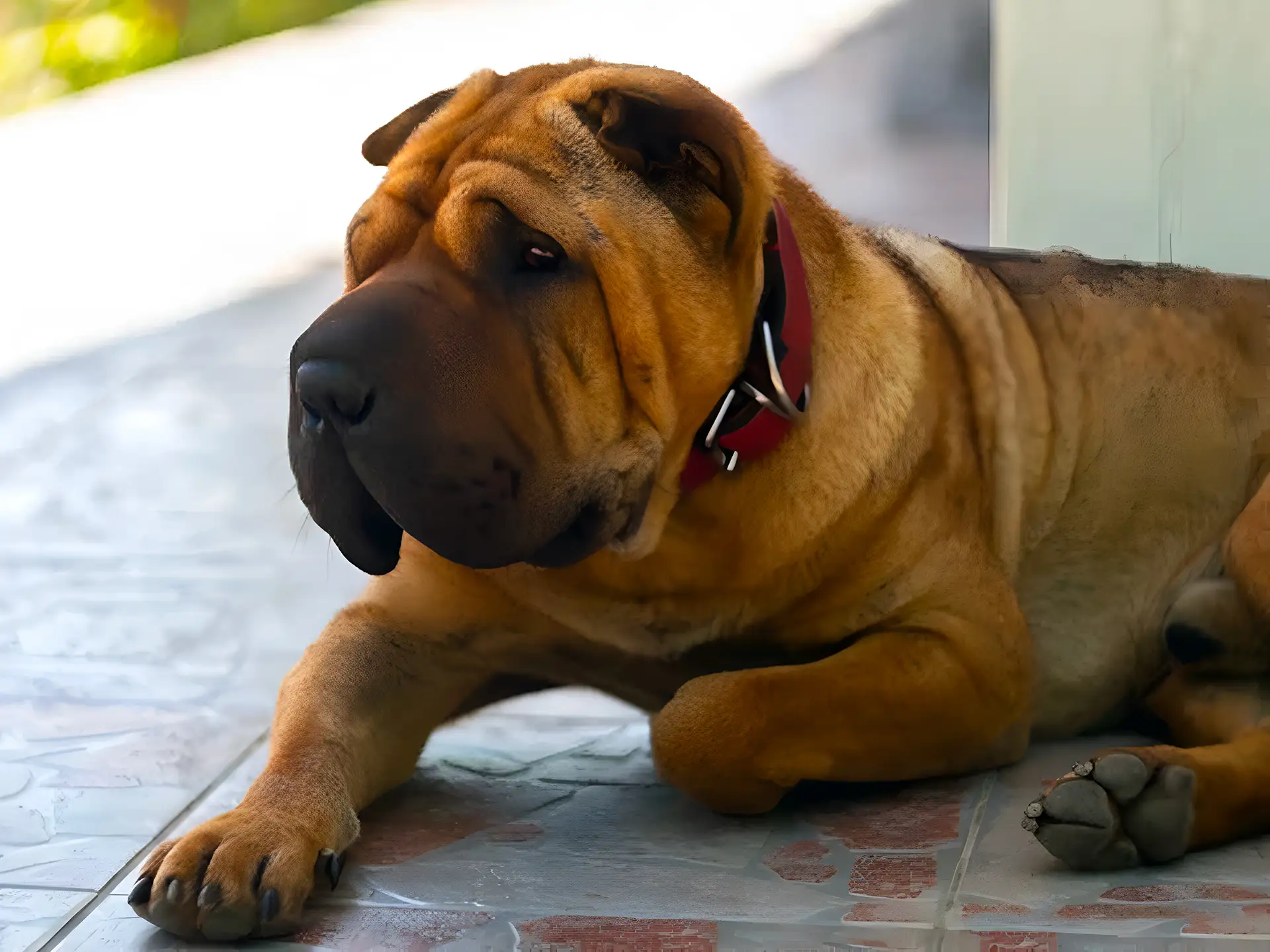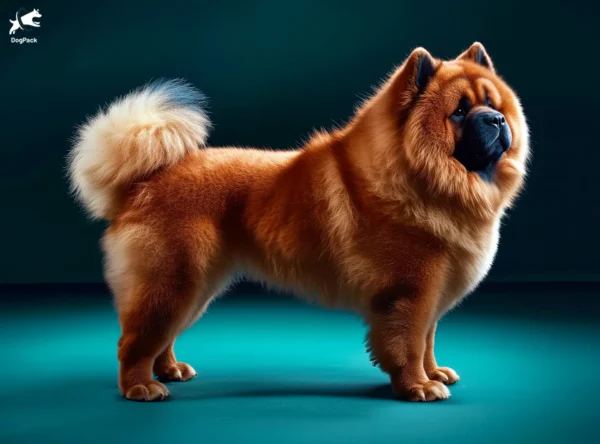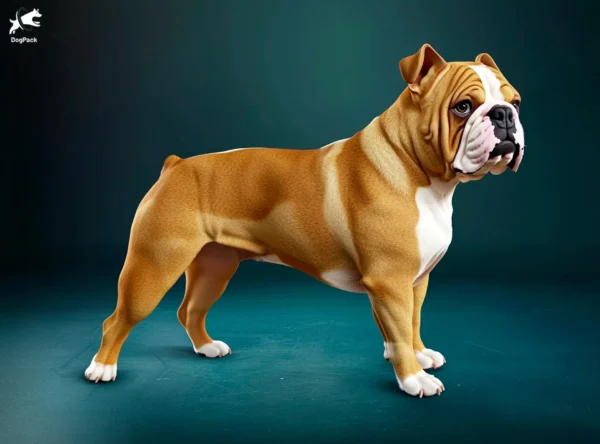Chinese Shar-Pei Dog Breed Info & Overview
The Chinese Shar-Pei, instantly recognizable by its deep wrinkles and signature blue-black tongue, is truly one of a kind. This medium-sized breed hails from China and is known for its loyalty, calm nature, and protective instincts. With an independent yet devoted personality, the Shar-Pei combines a dignified demeanor with a striking appearance, making it a unique and cherished companion among dog enthusiasts.
Characteristics
Pictures
Breed History
Originating over 2,000 years ago in the southern provinces of China, the Chinese Shar-Pei was bred as a versatile farm dog. They served multiple roles, including herding livestock, guarding property, and hunting game. Their distinctive wrinkles and bristly coat were thought to protect them from wild animals and adversaries.
During the Communist Revolution in China, the Shar-Pei population dwindled dramatically, pushing the breed to the brink of extinction. In the 1970s, a Hong Kong breeder named Matgo Law appealed to dog enthusiasts in the West to save the breed. His efforts led to the Shar-Pei being imported to the United States, sparking renewed interest.
Thanks to dedicated breeding programs, the Shar-Pei made a remarkable comeback. By the 1980s, they were recognized by major kennel clubs and gained popularity worldwide. Today, they are cherished for their unique appearance and loyal nature, though they remain a relatively uncommon breed compared to others.
Temperament, Personality
The Chinese Shar-Pei is known for its calm and dignified demeanor. They are fiercely loyal to their families and can be quite protective, making them excellent watchdogs. While they may seem aloof with strangers, they form strong bonds with their human companions.
Early socialization is crucial for this breed, as they can be wary or even suspicious of unfamiliar people and animals. With proper training, they can coexist peacefully with other pets, but they may display dominant behavior if not properly guided.
Despite their independent streak, Shar-Peis are intelligent and can be trained with patience and consistency. They respond best to positive reinforcement methods. Their somewhat stubborn nature means they are better suited to experienced dog owners who understand their unique personality.
Physical Characteristics
One of the most striking features of the Chinese Shar-Pei is their wrinkled skin, especially prominent in puppies. As they mature, the wrinkles become more concentrated around the head and neck. They have a bristly, sandpaper-like coat that comes in various solid colors, including fawn, black, cream, and red.
The Shar-Pei has a square, muscular build with a broad chest and strong legs. Their small, sunken eyes and tiny ears give them a unique expression. Another distinctive trait is their blue-black tongue, which they share only with the Chow Chow.
Medium in size, the Shar-Pei stands between 18 to 20 inches tall and weighs around 45 to 60 pounds. Their tail is set high and curls over the back. Overall, their physical appearance is unlike any other breed, contributing to their allure.
Health Issues
The Chinese Shar-Pei is prone to certain health issues due to their unique physical traits. One common concern is skin infections caused by their wrinkles trapping moisture and bacteria. Regular cleaning and proper grooming can help prevent these problems.
Shar-Peis are also susceptible to a condition known as Shar-Pei Fever, characterized by recurring fevers and swollen hocks. This can lead to amyloidosis, a serious condition affecting the kidneys and other organs. Early detection and veterinary care are essential.
Other health issues include hip dysplasia, eye problems like entropion, and allergies. Responsible breeders screen for these conditions to reduce their occurrence. Regular veterinary check-ups and a healthy lifestyle can contribute to the Shar-Pei’s well-being.
Grooming Needs
Despite their short coat, the Chinese Shar-Pei requires regular grooming to maintain healthy skin. Their wrinkles need to be cleaned and dried thoroughly to prevent infections. A gentle wipe with a damp cloth followed by drying is recommended.
Bathing should be done as needed, using a mild dog shampoo to avoid skin irritation. Over-bathing can strip natural oils and exacerbate skin issues. Brushing once a week helps remove dead hair and keeps the coat in good condition.
Ear care is important since their small ear canals can trap debris, leading to infections. Regular checking and cleaning can prevent problems. Nail trimming and dental hygiene are also essential parts of the Shar-Pei’s grooming routine.
Exercise Requirements
The Chinese Shar-Pei has moderate exercise needs. Daily walks totaling 45 minutes to an hour are sufficient to keep them healthy and happy. They enjoy playtime but are not overly energetic, making them suitable for various living environments.
Due to their short muzzle, Shar-Peis can be sensitive to extreme temperatures, especially heat. Exercise during cooler parts of the day is advisable to prevent overheating. They are not built for intense activities like long-distance running.
Mental stimulation is also important for this intelligent breed. Puzzle toys, training sessions, and interactive games can keep their minds engaged. A well-exercised Shar-Pei is more likely to be well-behaved and content.
Training Tips
Training a Chinese Shar-Pei requires patience and consistency. Their independent nature means they may not always be eager to please. Positive reinforcement methods, using treats and praise, are most effective in motivating them.
Early socialization is crucial to help them become well-adjusted adults. Exposing them to various people, places, and situations can reduce wariness of strangers and other animals. Puppy classes can be beneficial for social skills.
Setting clear boundaries and being a confident leader will earn their respect. Avoid harsh training methods, as they can become stubborn or withdrawn. Short, varied training sessions can prevent boredom and enhance learning.
Nutrition, Diet
A balanced diet is essential for the Chinese Shar-Pei’s health. High-quality dog food formulated for medium-sized breeds with moderate energy levels is recommended. Look for foods rich in protein to support muscle mass.
Due to potential food allergies, some Shar-Peis may require a diet with limited ingredients or hypoallergenic options. Common allergens include grains and certain proteins. Consulting a veterinarian can help determine the best diet.
Portion control is important to prevent obesity, which can exacerbate health issues like hip dysplasia. Feeding two measured meals per day rather than free-feeding helps maintain a healthy weight. Always provide access to fresh water.
Adoption, Breeders
If you’re considering adding a Chinese Shar-Pei to your family, it’s important to find a reputable breeder who conducts health screenings. This helps ensure you bring home a healthy puppy with a good temperament.
Adoption is another wonderful option. Organizations like the Chinese Shar-Pei Rescue Trust specialize in rehoming Shar-Peis in need. Rescuing can be a rewarding experience and gives a dog a second chance.
Whether adopting or buying, ask for health records and meet the parents if possible. Avoid puppy mills or unscrupulous sellers. A responsible breeder or rescue will be transparent and supportive throughout the process.
Family Pet?
The Chinese Shar-Pei can make a wonderful family pet for households with older children. Their loyal and protective nature means they bond closely with their family members. They are typically calm indoors, making them suitable for various living situations.
However, they may not be the best choice for families with very young children. Shar-Peis can be intolerant of rough play and may assert themselves if they feel threatened. Supervision and teaching children how to interact respectfully are important.
With other pets, early socialization is key. They may have a dominant attitude towards other dogs and a prey drive towards smaller animals. Proper introductions and ongoing management can help them coexist peacefully.
Right For You?
Deciding if the Chinese Shar-Pei is the right breed for you depends on your lifestyle and experience. They thrive with owners who are confident, consistent, and understand their independent nature. First-time dog owners may find them challenging.
If you’re seeking a loyal companion who will be a devoted guardian, the Shar-Pei could be an excellent match. They are relatively low-maintenance in terms of exercise and can adapt to apartment living if their needs are met.
Consider the commitment to their grooming and health care, as their unique traits require attentive maintenance. If you’re prepared to invest time and effort, the Chinese Shar-Pei can be a rewarding and loving addition to your home.
Conclusion
In summary, the Chinese Shar-Pei is a distinctive breed that offers loyalty and protection to those who appreciate its unique qualities. With their wrinkled charm and dignified demeanor, they stand out both in appearance and personality. They are best suited for experienced owners who can provide consistent training and proper care. If you’re prepared for the responsibilities, the Shar-Pei can be a devoted and rewarding companion.
FAQs
-
Why do Chinese Shar-Peis have blue-black tongues?
The Chinese Shar-Pei’s blue-black tongue is a distinctive trait they share with the Chow Chow. While the exact reason is unknown, it’s believed to be a result of ancient breeding practices. The pigmentation may have been valued for its perceived mystical or protective qualities.
-
Are Chinese Shar-Peis good for allergy sufferers?
Chinese Shar-Peis have short coats but are not considered hypoallergenic. They do shed and produce dander, which can trigger allergies. If you have allergies, spending time with a Shar-Pei before adopting can help determine your sensitivity.
-
How much does a Chinese Shar-Pei puppy cost?
A Chinese Shar-Pei puppy from a reputable breeder can cost anywhere from $1,000 to $2,000, depending on lineage and location. Always ensure the breeder provides health clearances and is committed to the breed’s welfare.
-
Do Chinese Shar-Peis drool a lot?
Chinese Shar-Peis are not heavy droolers compared to some other breeds. However, they may drool slightly, especially after drinking water or during hot weather. Their facial wrinkles should be kept clean to prevent any issues.
-
Can Chinese Shar-Peis live comfortably in apartments?
Yes, Chinese Shar-Peis can adapt to apartment living due to their moderate exercise needs and calm indoor behavior. Providing daily walks and mental stimulation ensures they remain content and well-behaved in smaller spaces.
Breed Ratings
The Chinese Shar-Pei is reasonably intelligent but can be stubborn. They understand commands but may choose when to obey.
Generally reserved, they aren’t overly playful but enjoy interactive activities with their family members.
With moderate energy, they require daily walks but are content to relax at home afterward.
Shedding is minimal due to their short coat, but seasonal shedding can occur.
They have a moderate prey drive and may chase small animals if not properly trained.
Grooming requires attention to wrinkles and skin care, but overall maintenance is manageable.
Training can be challenging due to their independent nature; patience and consistency are key.
They can handle moderate periods alone but prefer the company of their family.
Generally quiet, they bark when necessary to alert of strangers or unusual activities.
Low drooling tendency makes them a cleaner breed in this aspect.
May be wary or dominant toward other dogs; early socialization is important.
Prone to certain health issues; regular vet care and responsible breeding improve their health prospects.

